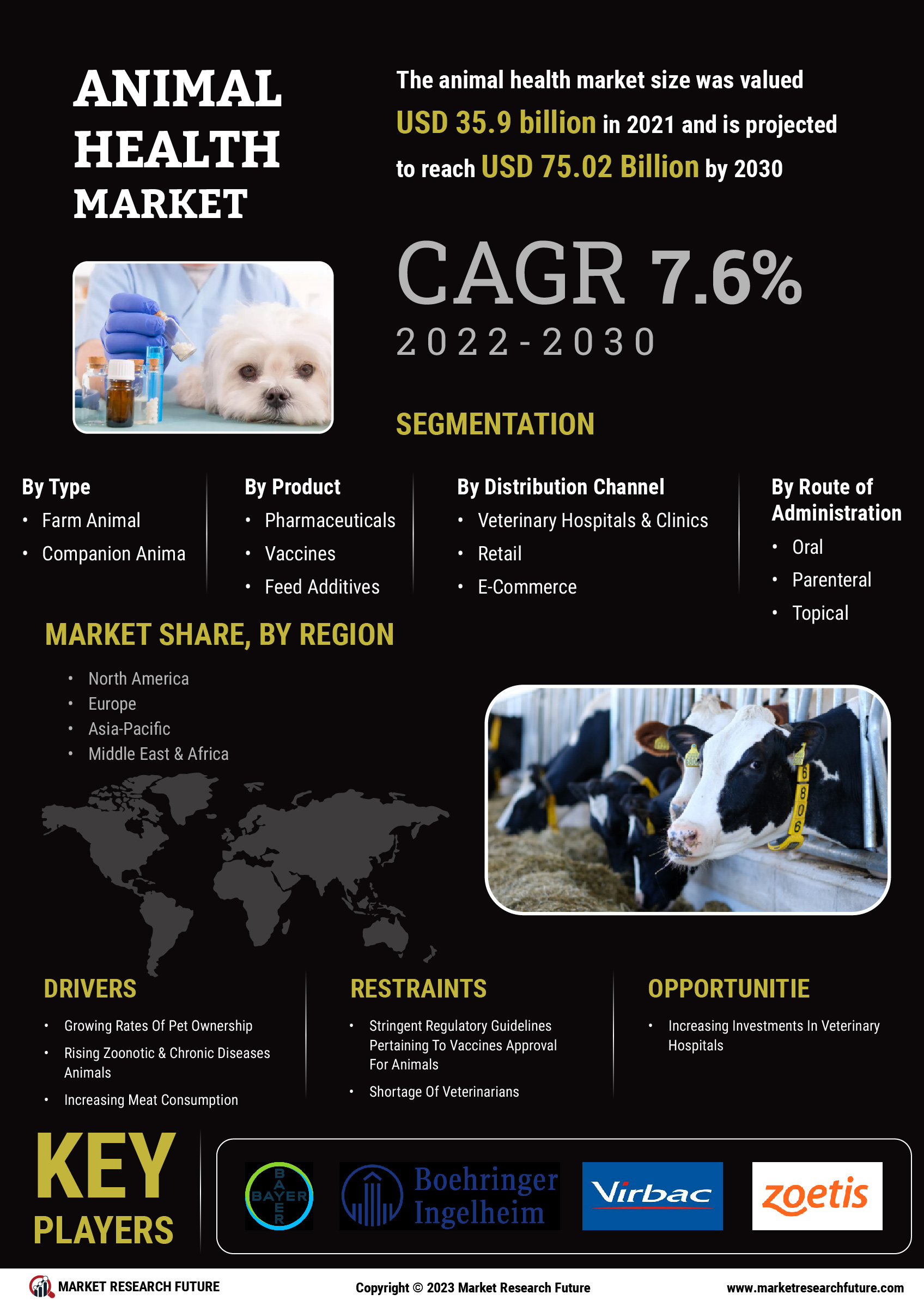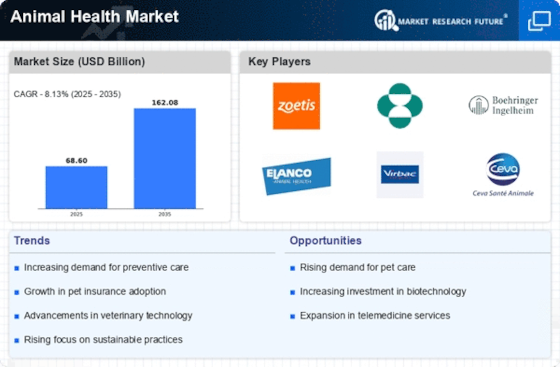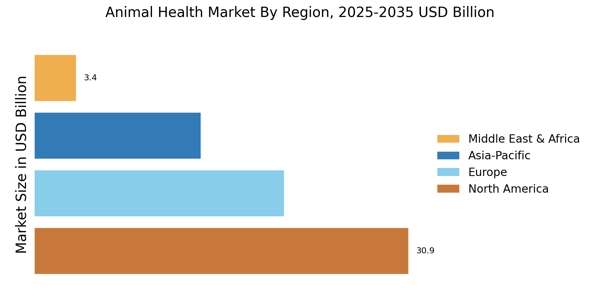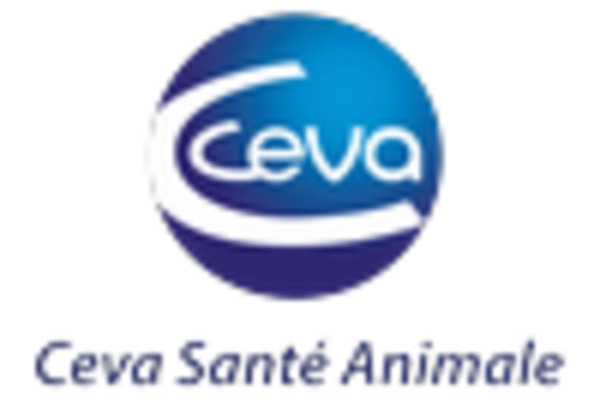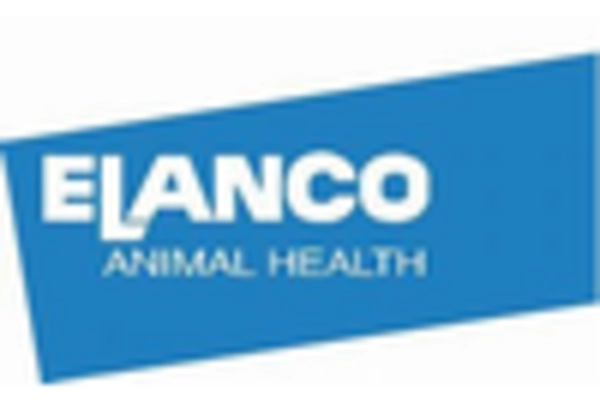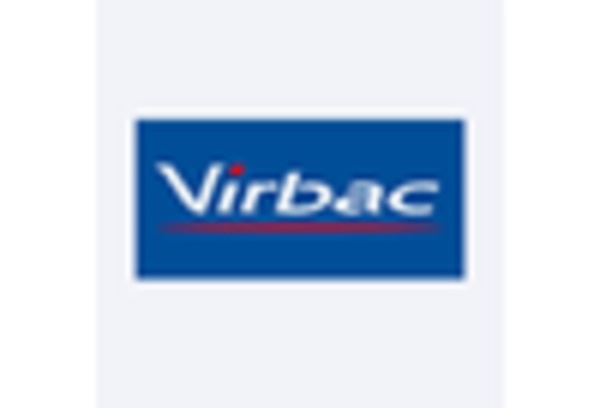The Animal Health Market is currently characterized by a dynamic competitive landscape, driven by innovation, strategic partnerships, and a growing emphasis on sustainability. Major players such as Zoetis (US), Merck Animal Health (US), and Boehringer Ingelheim (DE) are at the forefront, each adopting distinct strategies to enhance their market positioning.
Zoetis (US) focuses on expanding its portfolio through innovative product development, particularly in biologics and diagnostics, while Merck Animal Health (US) emphasizes strategic acquisitions to bolster its capabilities in vaccine development.
Boehringer Ingelheim (DE) appears to prioritize regional expansion, particularly in emerging markets, thereby enhancing its global footprint and operational reach. Collectively, these strategies contribute to a competitive environment that is increasingly shaped by technological advancements and a commitment to improving animal health outcomes.
Key business tactics within the Animal Health Market include localizing manufacturing and optimizing supply chains to enhance efficiency and responsiveness. The animal health sector structure is moderately fragmented, with a mix of large multinational corporations and smaller specialized firms.
This fragmentation allows for diverse product offerings and fosters competition among top animal health companies, who are increasingly focused on leveraging their strengths to capture market share. The collective influence of these companies is significant, as they drive innovation and set industry standards that shape consumer expectations and regulatory frameworks.
In August 2025, Zoetis (US) announced the launch of a new line of vaccines aimed at combating emerging infectious diseases in livestock. This strategic move underscores the company's commitment to addressing critical health challenges in the agricultural sector, potentially positioning it as a leader in preventive health solutions.
The introduction of these vaccines is likely to enhance Zoetis's market share and reinforce its reputation as an innovator in animal health.
In September 2025, Merck Animal Health (US) completed the acquisition of a biotechnology firm specializing in gene editing technologies. This acquisition is strategically significant as it enables Merck to integrate cutting-edge genetic solutions into its product offerings, thereby enhancing its competitive edge in the market.
The move reflects a broader trend towards the incorporation of advanced technologies in animal health, which may lead to more effective treatments and improved animal welfare. In July 2025, Boehringer Ingelheim (DE) launched a digital platform designed to facilitate real-time monitoring of animal health data for veterinarians and farmers.
This initiative not only demonstrates the company's commitment to digital transformation but also positions it to capitalize on the growing trend of data-driven decision-making in agriculture. By providing actionable insights, Boehringer Ingelheim is likely to strengthen its relationships with customers and enhance its service offerings.
As of October 2025, the Animal Health Market is witnessing a shift towards digitalization, sustainability, and the integration of artificial intelligence in product development and service delivery. Strategic alliances among largest animal health companies are increasingly shaping the competitive landscape, fostering collaboration that enhances innovation and market responsiveness.
Looking ahead, competitive differentiation is expected to evolve, with a pronounced shift from price-based competition to a focus on technological innovation, supply chain reliability, and sustainable practices. This transition may redefine the parameters of success in the Animal Health Market, compelling largest animal health companies to adapt and innovate continuously.
